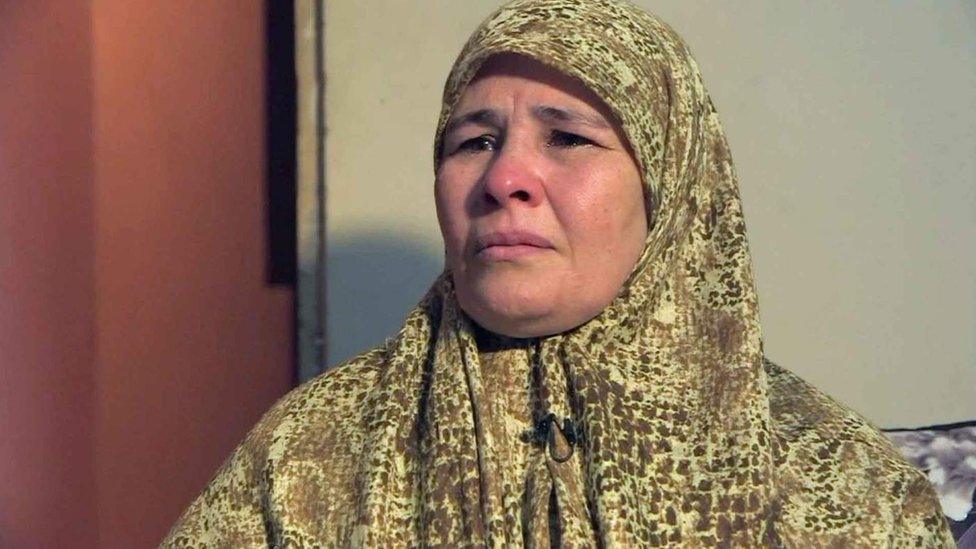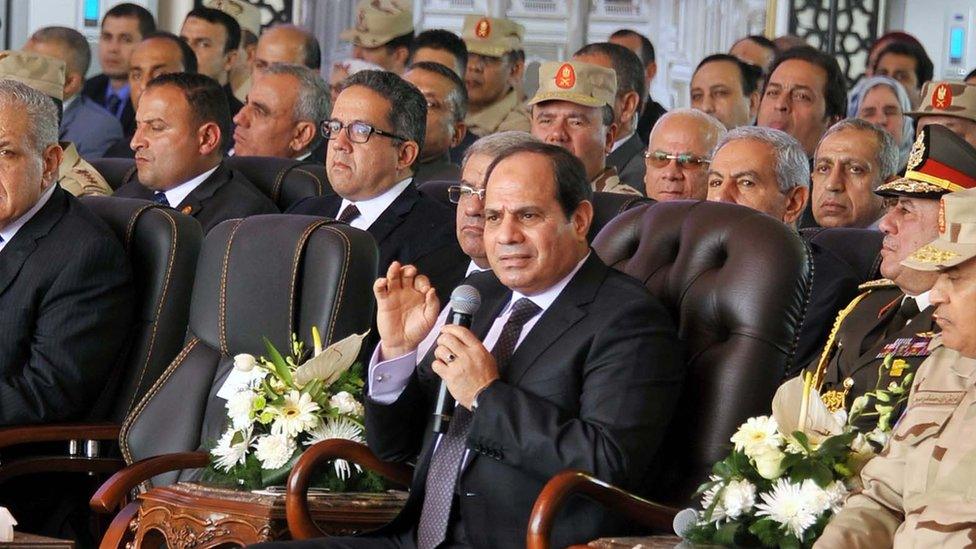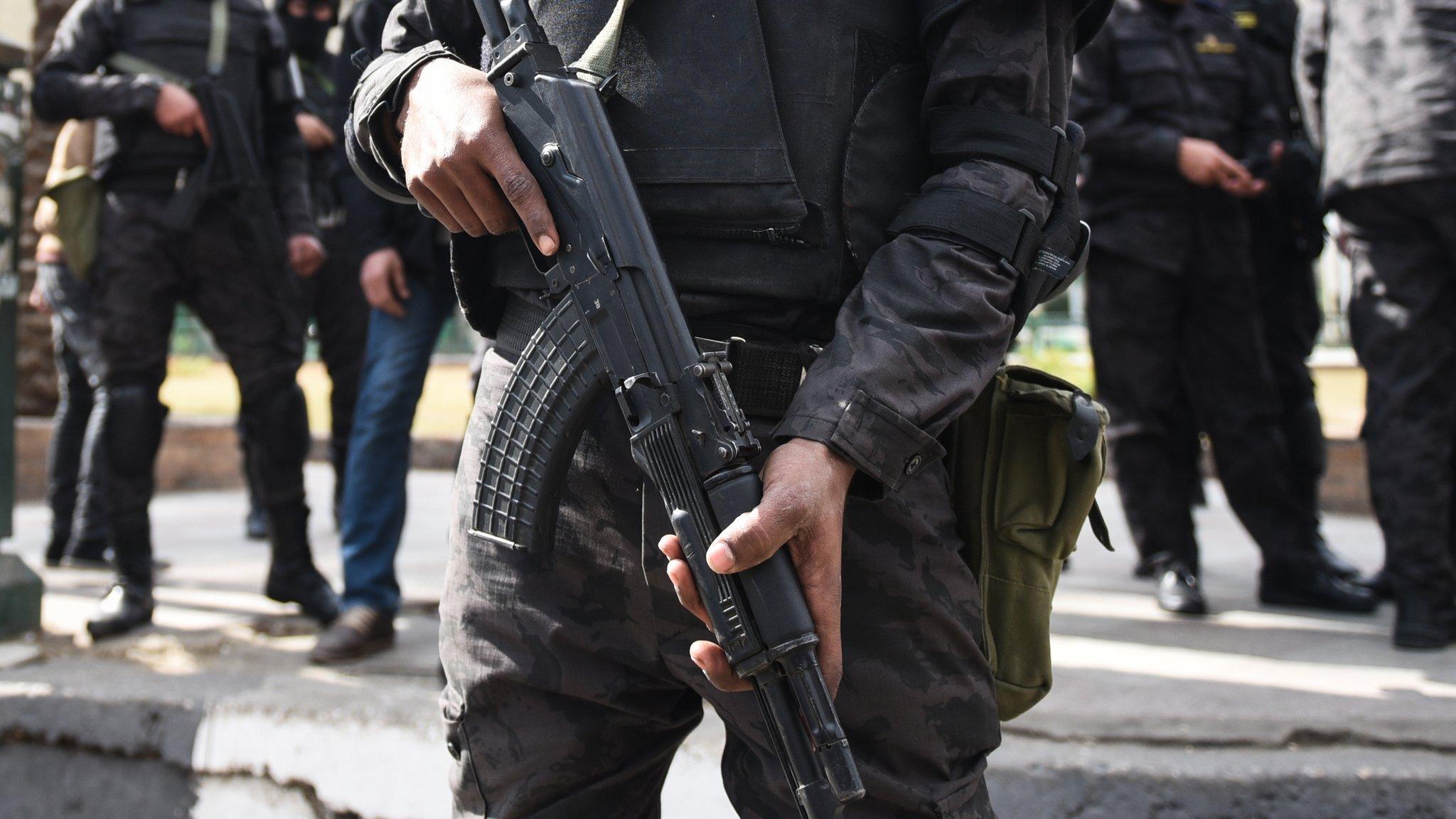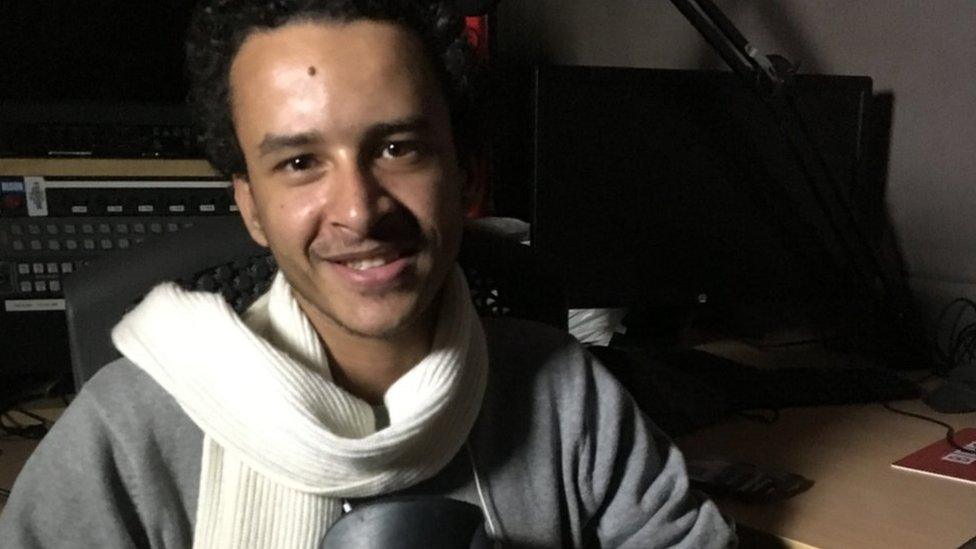Egypt arrests mother of woman at centre of BBC report
- Published

Zubeida's mother told the BBC her daughter vanished in April 2017
An Egyptian woman who spoke to the BBC about the torture and forced disappearance of her daughter has been arrested by Egyptian authorities on suspicion of spreading false news.
She has been detained for 15 days for questioning, officials said.
Last week the BBC reported on the disappearance of her daughter, Zubeida, who has not been seen since April 2017.
But on Monday, Zubeida appeared on an Egyptian talk show, external denying she had been detained or mistreated in any way.
Egypt's State Information Service has demanded the BBC apologise over the report, which it said was an "absolute falsification and fabrication".
The BBC said that it "stands by the integrity of its reporting teams and that it will be discussing the complaint with Egyptian authorities in the coming days".
Egyptian state-owned newspaper Al-Ahram said Zubeida's mother is accused of "publishing and broadcasting false news that could harm the country's national interests", external and joining an illegal group, which it does not identify.
On Tuesday, after Zubeida's appearance on television, her mother told a pro-Muslim Brotherhood TV channel based in Turkey that her daughter had been "forced under torture" to appear.
"I insist on what I said to the BBC; this is the truth," she said.

On Thursday, Abdul Fattah al-Sisi said insulting Egypt's security forces is "high treason"
Separately, human rights activists in Egypt said that a lawyer familiar with Zubeida's case named Ezzat Ghoneim had failed to return home from work yesterday. But there has been no indication from authorities that he was detained.
Amnesty International said it was "deeply concerned that Ezzat Ghonim may have been forcibly disappeared".
It called on Egyptian authorities to release any information they have about the lawyer, "and release him immediately if he is in state custody".
The arrest of Zubeida's mother comes a day after Egypt's President Abdul Fattah al-Sisi said any insult made towards the country's security forces was "high treason".
"If someone insults the army or police they're defaming all Egyptians and that's not freedom of opinion," he said.
Mr Sisi led the military's overthrow in 2013 of Islamist President Mohammed Morsi following mass protests against his rule.
Human rights groups say there has been a crackdown on opposition ahead of a presidential election later this month.
Potential opponents of Mr Sisi have been arrested, attacked, or have dropped out - he will now stand virtually unopposed.
What's the deal with Egypt's election?
- Published27 February 2018

- Published2 February 2018

- Published26 January 2018

- Published6 September 2017

- Published25 January 2017
